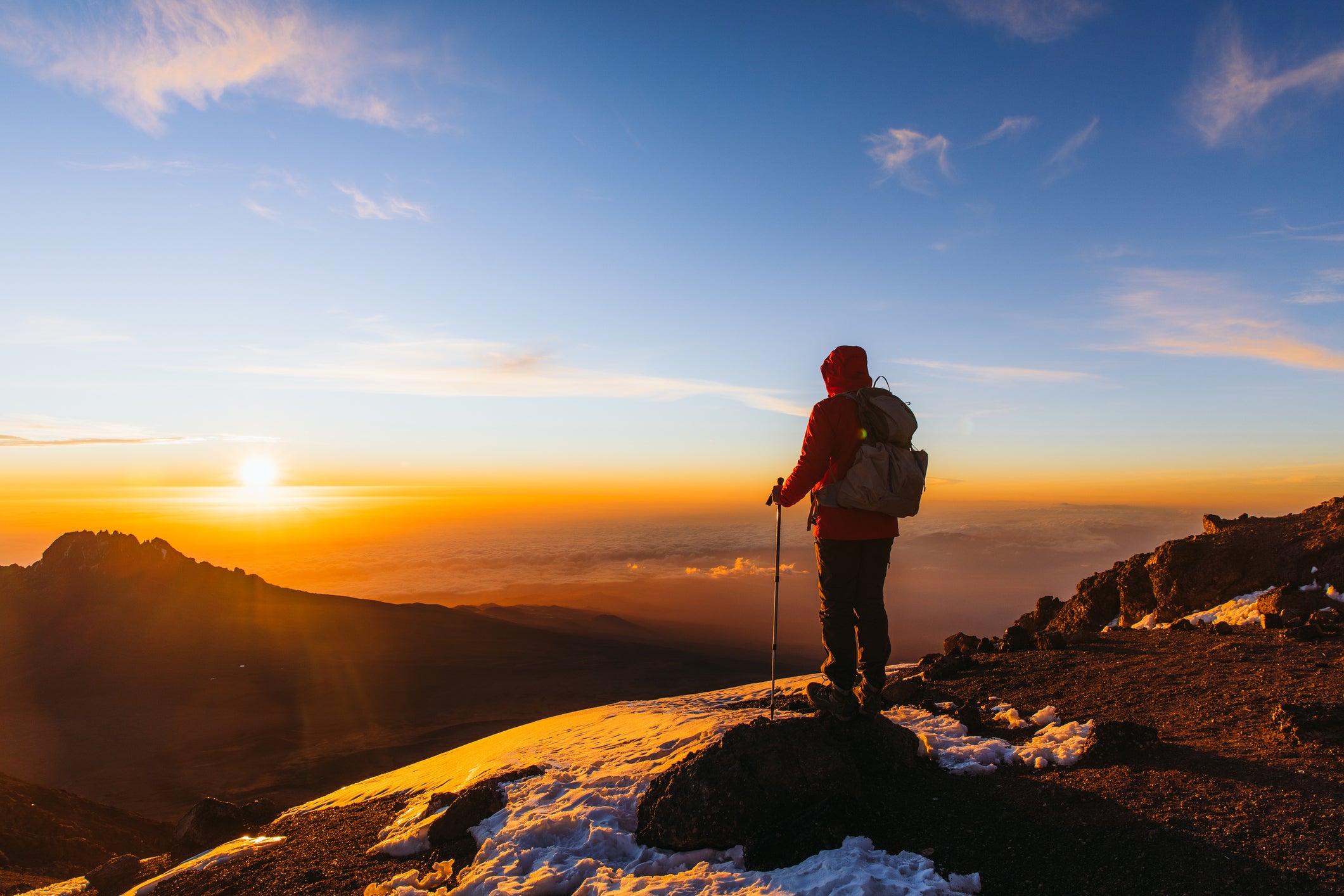As I sheltered from the rain at the base of Mount Kilimanjaro, dots of light started to flicker on. At first, it was just a few, but before I knew it 15, 30, then 55 tents were all emitting a warm glow from the blackness. In the cramped concrete structure – the only cover at the campsite – the remaining students from the College of African Wildlife Management hurriedly fixed tent poles, unpacked bags, and readied themselves for the most important climb of their lives. The following morning, they would embark on the Rongai Route for the final exam of their mountain guiding course: summiting.
I was in Tanzania with a group of 72 students to learn what it takes to become a Kilimanjaro mountain guide, a job that involves leading clients up Africa’s tallest peak – the highest free-standing mountain above sea level in the world.

Evans, a 37-year-old student, was standing quietly beside me. Like many of his colleagues, he started on the mountain as a porter, a somewhat treacherous job available to anyone with the mettle to carry 25kg of luggage 5,895 metres above sea level. Porters transport equipment as well as cook, clean and set up camp. The casual nature of the role can often lead to exploitation, with few formal contracts and a lack of oversight for proper working conditions.
Read more: How to experience Africa’s wildest coastline on a cruise
“My father died when I was four,” Evans told me. “I started as a porter because I had a hard life, financial responsibilities and family needs.” Mountain work can be a lifeline for those in similar situations, or those without access to a formal education (which accounts for 73 per cent of compulsory-school-aged children in Tanzania, according to Unicef). In fact, it’s one of the most lucrative career paths for locals without qualifications, as the eventual progression to chief guide comes with an often life-changing income.
Although the college prefers to admit students with mountain experience, there is currently no official requirement to have ever attempted the climb before starting the course. Applicants do require a secondary-level education, due to the fact that the course is taught in English and guides are required to know the…
Click Here to Read the Full Original Article at The Independent Travel…
